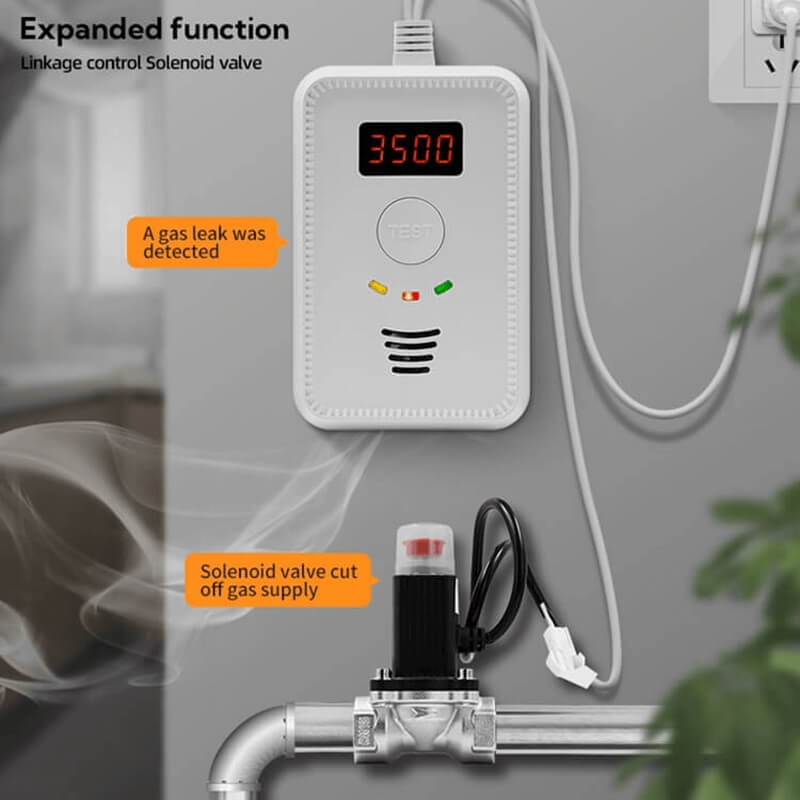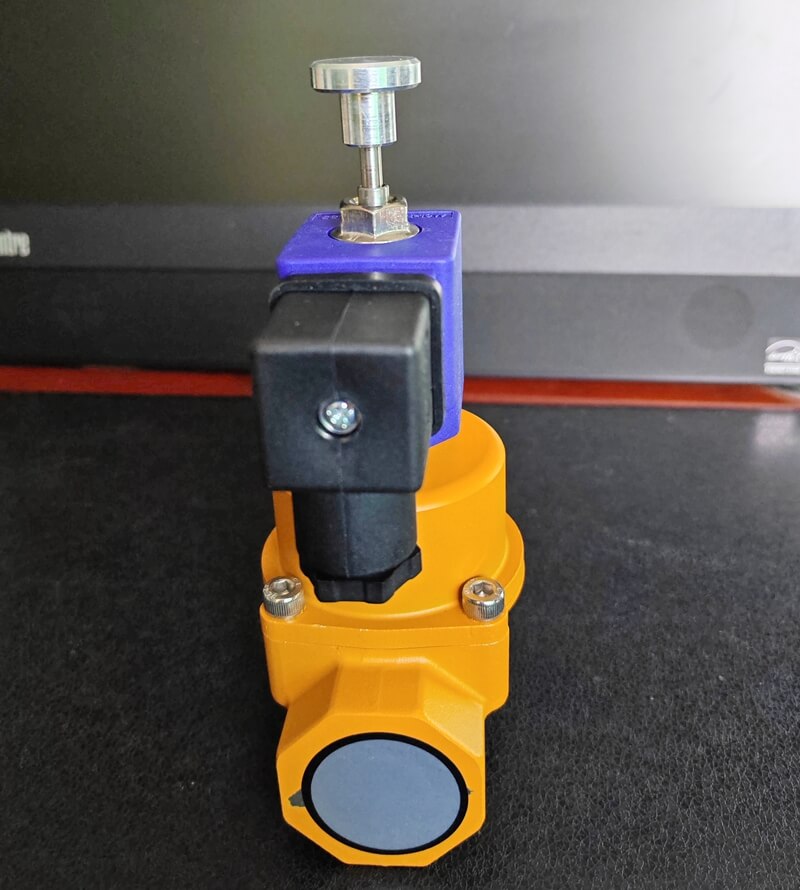Home Gas Leak Detector: Your Family's Silent Guardian Against Hidden Dangers
We all prioritize home security with alarms and locks, but what about the threat you can't see or smell? A home gas leak detector isn't just another gadget; it's an essential layer of protection for your family and your most valuable asset. Let's move beyond the technical specs and look at five real-life scenarios where this device is the difference between a close call and a catastrophe.
1. The "Forgotten but Still On" Scenario
· The Situation: You're boiling pasta for dinner, and the phone rings. It's an important call, so you step away, completely forgetting about the pot on the stove. The water boils over, extinguishing the gas flame, but the gas knob is still on.
· The Danger: Natural gas (methane) is now silently filling your kitchen, creating a highly explosive environment. A single spark from a light switch or the refrigerator compressor kicking on could be enough to trigger a devastating explosion.
· How the Detector Saves the Day: A plugged-in or battery-powered gas detector near your stove will sound a loud, piercing alarm the moment gas concentrations reach an unsafe level. It gives you the critical warning you need to shut off the stove, open windows, and avoid a disaster, all before you even notice the tell-tale "rotten egg" smell.
2. The Slow and Silent Leak Behind the Wall
· The Situation: An old, corroded gas line fitting behind your kitchen wall has developed a tiny, almost imperceptible leak. It's too small to smell, and it's hidden from view.
· The Danger: This slow leak allows gas to accumulate inside your wall cavities and slowly seep into your living space. Long-term exposure to low levels of gas can cause persistent headaches, nausea, and fatigue in your family—symptoms often misdiagnosed as other illnesses. The risk of explosion also grows over time.
· How the Detector Saves the Day: A sensitive gas leak detector will identify this low-level accumulation long before your nose can. It alerts you to a problem you didn't even know existed, allowing you to call a professional plumber to fix the leak at its source, safeguarding both your health and your home.
3. The Basement Water Heater Malfunction
· The Situation: Your gas-powered water heater in the basement is over ten years old. Its internal thermostat or valve fails, causing it to not shut off properly, leading to incomplete combustion and a leak of carbon monoxide (CO)—a deadly, odorless gas—along with raw natural gas.
· The Danger: CO is known as the "silent killer" because it is colorless and odorless. It binds to hemoglobin in your blood, preventing oxygen from reaching your vital organs. Families have been tragically lost in their sleep due to CO poisoning from a faulty furnace or water heater.
· How the Detector Saves the Day: Many modern home gas leak detectors are dual-function, monitoring for both combustible natural gas and carbon monoxide. Placing one near your gas appliances provides a crucial early warning for this dual threat, day and night.
4. The Outdoor Grill That Came Indoors (or Too Close)
· The Situation: After a summer barbecue, you bring your propane grill's gas tank into the garage or shed for storage. Unbeknownst to you, the valve wasn't fully closed.
· The Danger: Propane is heavier than air and will pool near the floor. In an enclosed space like a garage, it creates a massive explosion hazard. The same risk exists if a grill is placed too close to a window or a house's vinyl siding, which can melt from the heat and allow gas to enter.
· How the Detector Saves the Day: A gas detector placed in your garage or near a connecting door to the house will sense the accumulating propane and sound an alarm, prompting you to ventilate the area and secure the tank before starting your car or creating any other ignition source.
-
 Home Gas Leak Detectors: Your Essential Shield Against Silent Household Disaster
Home Gas Leak Detectors: Your Essential Shield Against Silent Household DisasterDo you like ?0
Read more -
 The Primary Purpose of a Home Gas Leak Detector: Safety and Prevention
The Primary Purpose of a Home Gas Leak Detector: Safety and PreventionDo you like ?0
Read more -
 The Critical Role of Gas Solenoid Valves in Preventing Home Gas Leak
The Critical Role of Gas Solenoid Valves in Preventing Home Gas LeakDo you like ?0
Read more -
 Gas Solenoid Valves: Enhancing Safety and Efficiency in Rural Households
Gas Solenoid Valves: Enhancing Safety and Efficiency in Rural HouseholdsDo you like ?0
Read more -
 Real-Life Heroes: How Gas Solenoid Valves Save Homes from Disaster
Real-Life Heroes: How Gas Solenoid Valves Save Homes from DisasterDo you like ?0
Read more -
 Smart Guardian: How Gas Solenoid Valves Make Your Home Safer & Smarter
Smart Guardian: How Gas Solenoid Valves Make Your Home Safer & SmarterDo you like ?0
Read more









